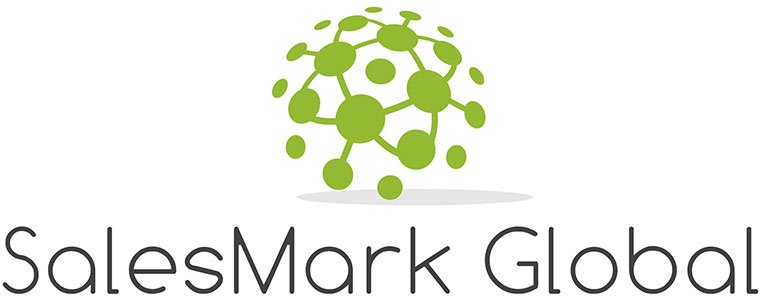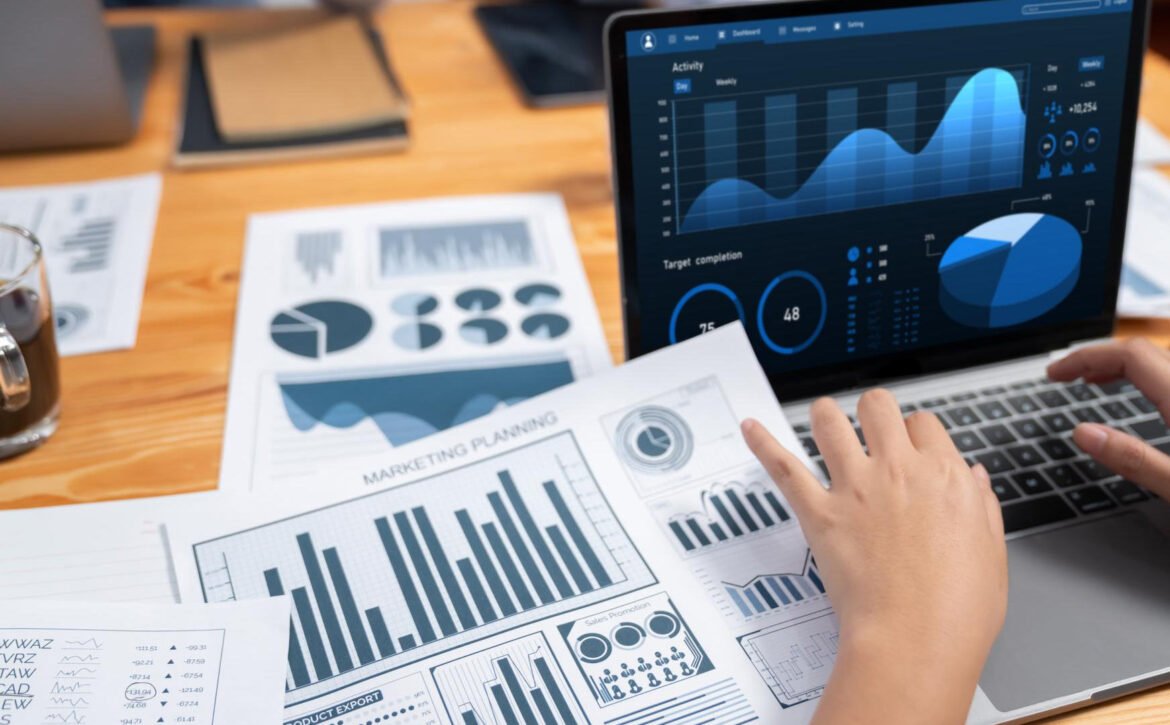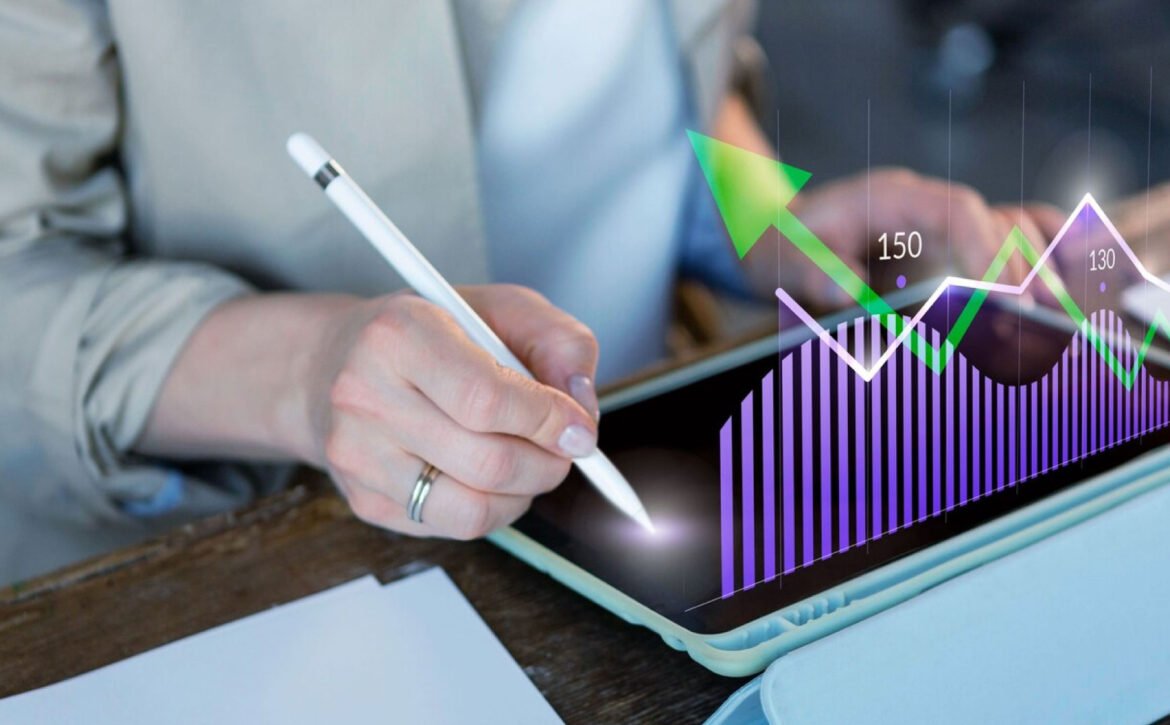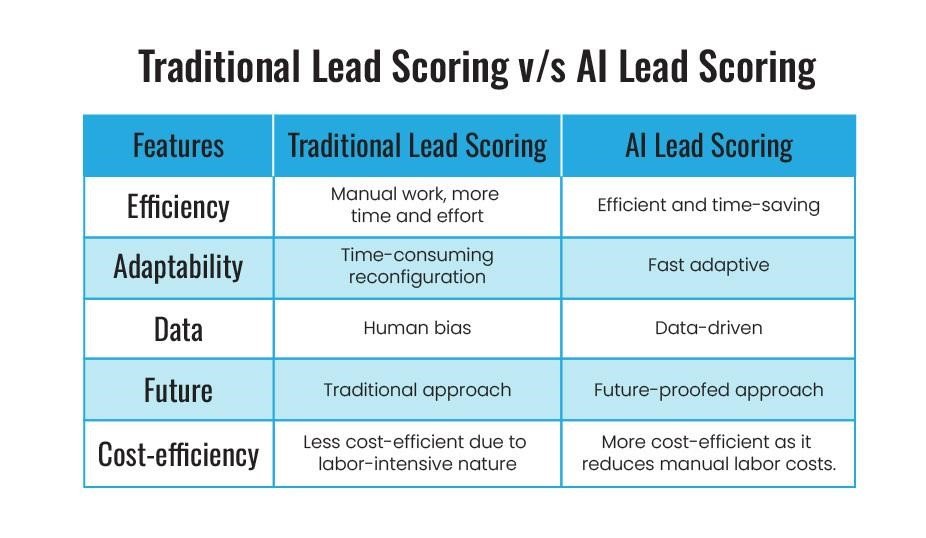5 Strategies to Utilize AI for Predictive Lead Scoring
Learn how machine learning, CRM integration, predictive analytics, and marketing automation can boost lead conversion rates and drive ROI.
1. Leverage Machine Learning for Dynamic Scoring Models
2. Integrate AI with CRM Systems for Enhanced Data Utilization
3. Utilize Predictive Analytics for Real-Time Lead Scoring
4. Incorporate Behavioral Data for a Holistic Lead Scoring Approach
5. Automate Lead Scoring with Marketing Automation Platforms
Conclusion
Predictive lead scoring is one of the quite popular and effective strategies used in the modern B2B marketing environment, which is developing constantly and where successful sales tactics are critical for business success. The use of AI can help the companies better evaluate the value of leads and thus increase the number of conversions and the overall ROI. The predictive lead scoring further extends beyond the simple methods of scoring because it incorporates the use of statistical models, historical data, and real-time data inputs in order to estimate the probability of converting each lead. In this article, we will focus on five ways AI can be used for predictive lead scoring with current data and examples.
1. Leverage Machine Learning for Dynamic Scoring Models
Some of the traditional lead scoring models use set rules and parameters to qualify leads. However much these systems may be helpful, they are often deficient in their ability to respond to dynamic market environments and customers’ behavior. While lead scoring solutions are traditional and rely on a rigid scoring system, AI-powered lead scoring solutions utilize machine learning to develop an ever-evolving scoring model based on new information gained.
For example, Salesforce’s Einstein AI takes into consideration customer communication history, behavior, and demographic data to provide a real-time sales lead score. This approach ensures that the businesses in question are always on the lookout for shifts in market trends and that the lead scoring system then is always in accordance with the latest trends in the market.
Data analysis in HubSpot indicates that companies employing AI lead scoring models experience a boost in sales efficiency by 20% as well as conversion of leads by 17% compared to the traditional approach. Lead scoring models, therefore, need to be updated periodically, with the help of machine learning, to make the process smoother and more efficient.
2. Integrate AI with CRM Systems for Enhanced Data Utilization
CRM systems are essential tools in many B2B sales strategies since they form the core of customer relationship management. Thus, the application of artificial intelligence in CRM lead scoring can help improve the outcomes of the lead scoring process. These AI algorithms are useful in analyzing large amounts of data held in customer relationship management systems to check for patterns and relationships not clearly visible to the analyst.
For instance, Microsoft Dynamics 365 employs AI to generate a predictive lead score based on data stored in CRM, such as past interaction and purchase history and communication preferences. This score is then used to rank such leads to ensure the sales team targets its efforts towards prospective clients, which will be valuable. However, they enhance not only the effectiveness of lead scoring but also provide sales teams with the most actual data.
Forrester has revealed that when businesses implement AI alongside CRM systems, the time required for lead scoring drops by 50% while the proportion of quality leads rises by 30%. This shows how the use of AI in sales can enhance the efficiency of sales operations and growth.
3. Utilize Predictive Analytics for Real-Time Lead Scoring
A subset of artificial intelligence, predictive analytics allows companies to anticipate future events based on past experiences. In the case of lead scoring, predictive analytics can offer automatic responses concerning particular leads and how likely they will convert.
For instance, Adobe’s Marketing Cloud lead scoring tool employs predictive analytics to determine the potential of converting each lead based on their behavior on different channels. This comprises website traffic, emails, social media communication, and so on. Through real-time processing of such data, the system arrives at a predictive lead score to guide lead follow-ups by the sales teams.
According to Gartner’s report, companies that utilized predictive lead scoring upped their lead-to-customer conversion rate by 25 percent and shortened their sales cycle by 35 percent. It is evident from the above-discussed statistics that making use of predictive analytics maximizes the effectiveness of lead scoring to remain relevant in B2B business.
4. Incorporate Behavioral Data for a Holistic Lead Scoring Approach
It offers behavioral data of lead involvement, including Web sessions, email reads, and content downloads. AI can then refine this lead score by considering not just the demographic data of the lead but also their behavior and engagement.
For instance, Marketo deploys an AI-driven lead scoring system that monitors behavioral data to give a numeric rating of the propensity to purchase. It replaces the simple demographic scoring and analyzes how a specific lead engages with the brand for further segmentation.
Research conducted by Demand Gen Report revealed that firms that incorporate behavioral data in their AI lead scoring enjoy a 50% spike in MQLs, and sales acceptance rates are up by 40%. This shows why some of the approaches to lead scoring that take into consideration the various characteristics, such as demographic data and the pattern of behavior, should be employed.
5. Automate Lead Scoring with Marketing Automation Platforms
Marketing automation lead scoring systems have become one of the most important components of modern B2B marketing approaches. Automating the lead scoring means that the leads are evaluated and prioritized on a consistent basis without relying on human intervention. Another factor is the ability to work with large data sets and make real-time changes to lead scores in marketing automation systems that are backed by artificial intelligence.
For instance, HubSpot has incorporated AI lead scoring, which eliminates the need for manual scoring by factoring behavioral and firmographic data into the process. The lead scoring in the system asserts that sales personnel work on the best information through updates on scorecards with fresh information as it becomes available in the market.
According to a survey conducted by Ascend2, businesses that implemented AI marketing automation lead scoring solutions observed enhanced efficiency and better results, as 70% of them stated better conversion rates and lead nurturing. Therefore, automating lead scoring can alleviate the burden and, at the same time, enhance the prospects of lead management strategies.
Conclusion
The use of predictive lead scoring is rapidly becoming standard among B2B organizations due to the ability of AI in lead management. Applying machine learning, utilizing AI in CRM, using prediction, adding behavioral indexes, and applying automation to lead scoring will greatly enhance organizations’ lead conversion and sales efficiency. The various examples and data collected in real-time have proved that such techniques serve as a strong advantage in the B2B competitive environment. Adopting the best lead scoring strategies and using appropriate AI technologies, you can provide qualified leads to your sales teams, thus promoting growth and achieving maximum ROI.
Visit Our SalesMarkBlog Section to Uncover the Sales Strategies That Ignite Your Sales Journey!











